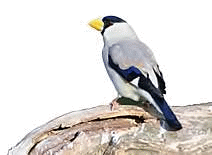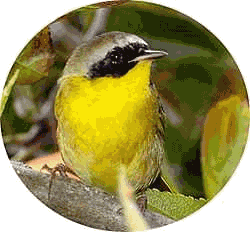Insights on Nature
|
Reflections |
|
|
 |
| As its name suggests, avian flu is a disease caused by a virus found in birds, but it may also infect various species of mammals. Humans infected by the flu’s virus develop early symptoms similar to those of the common flu, but may experience fevers up to 41° C (105.8º F). Also, the liver is likely to be affected, lymph cells may decline in number, breathing may become difficult and organ failures can occur, resulting in death. Views on the avian flu problem vary greatly, with some troubled by what they see as an enormous threat, others arguing that the situation has been exaggerated by drug firms out for profit and yet others calling for a shift to a vegetarian diet as a solution. Perhaps each group has touched on part of the truth, but the issue needs to be explored further. First, it is important to understand that our invisible “enemy” the virus is tiny beyond imagination. If one used a pen to write a dot on a piece of paper the dot could accommodate a hundred million viruses! Also, viruses existed long before humans and have evolved like humans to survive changing conditions and struggle for existence. Scientists refer to this process as “mutation” as if transformed viruses suddenly came into being in some automatic way. In reality, however, these organisms have been changing consciously over the millennia. And all the while humans have generally overlooked the existence of consciousness in plants, animals and even microorganisms, and so have failed to come up with an effective solution to the problems caused by viruses. In viewing the avian flu issue it is first necessary to understand why viruses exist. Like bacteria and other microscopic organisms, they co-exist with humans for mutual survival. Our digestive systems, from mouth to colon, are filled with bacteria and likewise viruses live quietly in various organs, on our skin and in our nerves. So basically, humans are filled with these life forms, which seem to be foes but are actually friends that help our digestion systems function properly, stimulate our immune systems so we can survive in adverse environments, and when life ends, act as garbage disposals that decompose our bodies, return them to earth and so purify nature. Microorganisms thus play an important role in metabolism and the continuation of life for living beings and are not superfluous parasites to be eradicated at will. Under the laws of nature, viruses find suitable hosts to grow and procreate, ensuring that living things function harmoniously. However, when humankind wreaks havoc with nature by destroying their habitats, viruses are forced to survive wherever they can like displaced persons compelled to migrate. Among humans, while first-generation immigrants struggle to adapt to a new land, the locally born new generation gradually settles down. Similarly, once viruses settle down in their new host, their existence becomes easier. Unfortunately, however, human beings generally blunder and create problems until the situation with viruses gets out of control. Severe acute respiratory syndrome (SARS) is a good example of this process. Within six months, SARS broke out in 29 countries, infecting 8,400 people, of whom 813 died. Asia alone suffered economic losses totaling US$40 billion, as well as inestimable mental and emotional damage. For instance, SARS patients and their families were treated as dangerous monsters feared and avoided by the general public, creating a scenario reminiscent of the tragic handling of lepers in medieval times! Today scientists have concluded that the most likely cause of SARS was a parasitic virus carried by bats, which later found new hosts in civets, and humans became infected with SARS after consuming these animals. A very small number of people ate civets, yet their behavior set off an enormous catastrophe for humankind, demonstrating that any disruption of the balance of nature sooner or later brings about inconceivable consequences. If humanity fails to learn from this incident, it could suffer an even greater disaster from avian flu, for which we are currently taking inadequate preventive measures. To describe the approach as drinking poison to quench our thirst may not be an exaggeration. The present method being used is massive slaughter of poultry. For example, in 1997 avian flu broke out in parts of Asia, causing six deaths and infecting eighteen other victims; and so 1.5 million chickens were destroyed in three days. And this year, soon after the bird flu alarm was triggered, an estimated 150 million domestic fowl were destroyed, with large numbers being burned alive. If you have ever been burned or scalded, you can understand the pain these creatures went through. Thus, the inevitable question arises: Will human beings not be punished with strong retribution for such actions? Perhaps we can ignore the potential vengeance of those birds that died in hate. But can we ignore the fact that the viruses they were hosts to will be driven by their survival instincts to locate new homes? Now we know that pigs have become the hosts. Are we going to continue with the killing? After we have killed all the pigs, what creatures will be next on the list? And as the list grows, will it eventually come to human beings? Perhaps few people have given deep consideration to why such large numbers of helpless poultry had to be destroyed. To lower meat prices, the modern farming industry confines large numbers of animals in very small spaces so that when one falls ill the disease spreads quickly. Thus humans feel it necessary to save their own skin by sacrificing helpless poultry. Mad-cow disease, foot-and-mouth disease in pigs, SARS from civets and avian flu all originate from human transgression of the laws of nature, and many animals have lost their lives as a result. We humans are the culprits just because we want to satisfy our palates. What we have done to our fellow creatures will be done to us. Even a tiny virus has the will to survive, not to mention an animal! Humans have the will to live so human rights are respected, and it is only just that we extend the same spirit to everything in nature, revere the Creator and respect all life forms. Let us treat all animals as our friends by loving and caring for them. In return they will repay us with boundless bliss and delightful surprises. Let us pray that this day will come very soon. ♥ |
